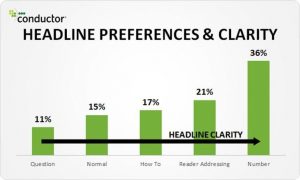The marketplace is starting to look more promising for small business owners that are looking to sell their businesses. 2013 showed a noticeable increase in the amount of closed transactions, up 41.7% from the prior year period ending September 30, 2013. An increase in the number of small businesses listed for sale and qualified buyers is being attributed for the spike in transactions, according to BizBuySell.com the internet’s largest business for sale marketplace.

As we discussed in our previous posts, “Will My Business Help Fund My Retirement”, and “Is Your Business Worth as Much as You Think It Is,” preparing your business for sale takes preparation and a good hard look at yourself and your company. In order to set your business up to receive the best possible price, we have identified 3 essential areas you need to address.
Top 3 Areas To Concentrate On:
- Operations
- Financial
- Sales
It is estimated that it requires 1 to 2 years to prepare a business for sale. Remember, that’s preparing it, not selling it. It may take several more years to actually sell it. If you are looking at selling your business within the next 5 years, the time to begin preparing your company for sale is NOW.
Operations
Companies that have strong operational controls across all aspects of their business are attractive acquisition targets. Key areas to focus on are:
- Is your product pipeline streamlined, efficient, and effective?
- Will a new buyer need to buy new equipment, hire additional workers and train them or revamp your production process?
- Do you have an effective marketing and sales process?
- How are leads generated and moved to sales?
- Does the owner take most of the sales leads and limit the effectiveness of the sales force?
- How effective is your 2nd tier management?
- Do you have a good management structure involving people who have the authority to make business decisions?
- Are your managers being micro managed by you?
- Do you have unmotivated and undisciplined workers? This may be a function of poor leadership and managers not having enough authority.
- Do they have a great deal of experience in the industry?
- Do you have an Operational Control Procedures Manual?
- Do you have a clear focused plan for growth?
If you are not there, will the business function just fine without you? If the answer is no, you may have time to correct this issue.
It should be noted that businesses that are highly dependent upon the owner will be less valuable when it comes time to sell.

Financial Controls
Two very common mistakes that many business owners make are maintaining sloppy books and being very liberal with taking personal expenses as tax write-offs within the business.
It is crucial that you have strong financial statements and can readily present a clear and accurate picture of the financial health of your company to a prospective buyer.
From BizBuySell.com, “To help make their businesses more marketable, owners thinking of selling should begin keeping complete, detailed financial books at least three years prior to a sale so that all income is accounted for and can be properly evaluated by the buyer.”
“This includes removing all unnecessary expenses from the books, such as a “company car” that isn’t actually used for business purposes. A higher tax bill might follow, but it will also result in a higher sale price once a transaction takes place.”
In order to give your prospective buyer faith in the validity of your financial statements it is also good practice to have either “reviewed” financial statements from an independent CPA firm, or if you can afford to, provide “audited” financial statements. This should go a long way in providing your buyer with confidence.
Here are several tips to get you financials in shape in preparation for a sale:
- Prepare 2-3 years of tax returns and financial statements. (Be organized.)
- Focus on physical assets for Debt Financing – Businesses with tangible assets capital equipment or owned real estate, have greater success securing business loans and can be used as collateral for securing those loans.
- Offer seller financing – Banks are still reluctant to lend for business acquisition and the economy is still difficult. Sellers willing to offer financing over a period of time with interest are seeing more success with selling. It also gives you a fixed income annuity stream.
Remember, if you cannot prove the numbers, a prospective buyer won’t make an offer!

Sales
Perhaps the most crucial area to examine when preparing your company for sale is your company revenues. For privately held companies, sales revenues are usually the first figure that a prospective buyer will look at when considering your company as an acquisition target, and determining the value of your company.
If your company revenues have been stagnant for the past several years, few buyers will be excited about the prospect of acquiring your business.
When evaluating your revenues, here are a few questions to consider.
- What is your present market share compared to your competition?
- Is your business outperforming the overall economy?
- Is your business recession proof?
- Businesses that outperform during periods of recession may indicate less risk for perspective buyers.
For business owners that are dependent on the sale of their business to provide for their retirement needs, a key question to ask is:
Are my current revenues enough to provide a valuation figure capable of satisfying my retirement needs?
For many of you the answer is NO!
Let’s look at a brief scenario.
Your business is tight as a drum in terms of operations and financial controls. You have loyal employees and a general manager that runs the business when you are not around for day to day operations.
However your business was impacted by the most recent downturn and sales have been off for the last several years. Your current valuation comes in at $ 1 million. Your financial advisor reminds you that your need to account for taxes associated with the sale of your company and estimates that your business needs to sell for twice that figure to net you enough to satisfy your retirement needs.
Unfortunately this is the dilemma that many small business owners will find themselves in, in the coming years. The number just won’t pencil out.
If your current sales don’t provide for a sufficient valuation to meet your retirement needs then increasing revenues will be a necessity.
Business owners will need to look at either investing in sales and marketing programs designed to increase business revenues thereby increasing business valuation, or face a diminished lifestyle in retirement.
You have to spend money to make money. However, you don’t have to spend it needlessly!
Other factors with respect to sales include:
- Composition of your customer or client base.
- Dependence on a handful of clients will increase risk and lower sales price.
- Customer sales contracts.
- Experience of your sales force
- Marketing and sales pipeline
- Online vs. offline marketing programs
Business owners should be looking to grow their revenues not only in the years prior to listing the company for sale, but throughout the sales process. As discussed earlier, business sales transactions can take some time, and owners should manage as if the sale were not happening at all. A promising deal can turn south in an instant.
Final Thoughts
The marketplace is changing and the next 5 to 10 years look poised to be a buyer’s market. With the sheer volume of businesses hitting the market from boomers looking to retire, competition for the attention of qualified buyers with adequate resources to pull the trigger will be fierce. Only those that have put in the time to evaluate their companies and make the appropriate changes will reap the rewards.
Remember when preparing your business for sale, think like a prospective buyer.
Business & Finance Articles on Business 2 Community
(362)









